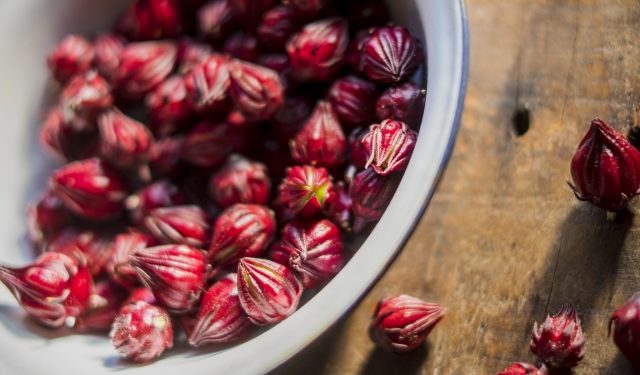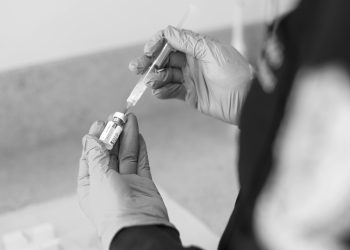Roselle, a nutrient-dense plant, is commonly used in various food products and supplements. Growing research has demonstrated that roselle may offer significant health benefits, including potentially helping prevent cancer and cardiovascular diseases, lowering blood sugar levels, and even improving symptoms of Alzheimer’s disease.
Rich in polyphenols, dietary fiber, and organic acids, roselle can contribute to overall well-being. These compounds help protect against oxidative stress, promote skin health, support weight management, and enhance physical fitness.
Cardiovascular Disease Prevention
Roselle may help reduce the risk of cardiovascular disease. Research has shown that anthocyanins, a type of flavonoid, found in roselle can inhibit the oxidation of low-density lipoprotein cholesterol (commonly known as “bad” cholesterol), thus preventing the development of atherosclerosis, a condition where plaque builds up in the artery walls.
A meta-analysis published in Nutrition Reviews in 2022 indicated that roselle significantly reduced systolic blood pressure by 7.92 percent and diastolic blood pressure by 6.84 percent compared to baseline. On average, roselle lowered systolic blood pressure by 8.8 mmHg. It is estimated that for every 2 or 5 mmHg reduction in systolic blood pressure, the risk of coronary heart disease mortality decreases by 4 percent or 9 percent, respectively. These findings suggest that roselle may be a valuable tool in reducing the risk of cardiovascular disease.
Blood Pressure and Lipid Reduction
A clinical trial published in the Journal of Human Hypertension in 2021 investigated the medicinal potential of roselle. Researchers recruited 219 hypertensive patients without cardiovascular or kidney complications and followed them for six months. The results showed that taking roselle tablets or decoctions was as effective as taking the antihypertensive drug captopril in lowering blood pressure.
Roselle was found to reduce elevated cholesterol and LDL cholesterol levels in diabetic mice by 29 percent and 40 percent, respectively. These effects were comparable to those of the cholesterol-lowering drug lovastatin.
Roselle consumption could help decrease markers of cardiovascular disease risk and lower the likelihood of developing cardiovascular conditions, according to the researchers. They recommended that patients with chronic hypertension consider incorporating roselle into their diet.
Diabetes Management
A meta-analysis of randomized clinical trials suggested that drinking roselle tea can “significantly” lower fasting blood sugar levels by 3.67 mg/dL. Normal fasting blood sugar levels typically range from 70 to 99 mg/dL.
The study noted that roselle can be used either alone or in combination with conventional treatments to prevent or manage diabetes and its complications, including retinopathy, kidney disease, neuropathy, ulcers, and inflammation.
Inhibition of Cancer Cells
The medicinal benefits of roselle include its ability to combat various types of cancer. One study found that roselle is rich in polyphenols, known for their antioxidant and antitumor properties. The research suggested that roselle extracts can induce apoptosis, or cell death, in gastric carcinoma cells. Another study discovered that roselle extracts effectively inhibit the growth of in vitro melanoma cells.
Other research has found that roselle extracts exhibit antitumor effects on two types of breast cancer cells, effectively inhibiting their invasion and migration. Both in vitro and in vivo studies have shown that extracts from roselle leaves can induce apoptosis in prostate cancer cells.
Skin Health and Weight Management
The skin health benefits of roselle are attributed to its polyphenolic compounds, such as anthocyanins, which have antioxidant and anti-inflammatory properties. A clinical trial showed that healthy adults who drank 200 ml of roselle beverage daily for six months experienced increases in phenolic content and antioxidant capacity, along with improvements in facial skin moisture and reduced redness.
Another clinical trial, conducted over a 12-week period and involving 36 overweight people aged 18 to 65, found that taking roselle extract led to reductions in weight, body fat, and abdominal fat, as well as improvements in fatty liver. The researchers noted that roselle extract could be used as a complementary therapy for preventing obesity and non-alcoholic fatty liver disease.
Benefits for Alzheimer’s Disease
Gossypetin, a flavonoid found in roselle, has been shown to activate microglia, the brain’s primary immune cells. It helps clear damaged or dying neurons and beta-amyloid plaques from the brain, potentially contributing to alleviating symptoms of Alzheimer’s disease.
A 2022 study published in the journal Alzheimer’s Research & Therapy showed that gossypetin treatment improved spatial learning and memory abilities in mice with Alzheimer’s by reducing beta-amyloid plaques in the brain.
Medicinal and Culinary Uses of Roselle
Traditional Chinese Medicine (TCM) embraces the concept of “food as medicine.” Roselle can be used both medicinally and as part of diet therapy, Kuo-Pin Wu, superintendent of Taiwan Xinyitang Heart Clinic, said in an interview with The Epoch Times. Roselle’s flowers, roots, and seeds have medicinal applications. The calyces, leaves, and stems can also be consumed as food.
Roselle can be used to create a variety of delicious snacks. For example, when pickled, it becomes a sweet and tangy treat that is not only refreshing but also believed to nourish the blood. In addition to brewing roselle tea, you can ferment sugared roselle to make wine, which is thought to enhance physical strength and support liver and heart health. The immature calyces can serve as a base for vinegar or be cooked as a vegetable, while the tender leaves can be eaten either raw or cooked.
Consumption Precautions
While roselle offers many health benefits, Wu said, there are several key points to keep in mind when consuming it:
- Roselle is high in organic acids, which can aid digestion. However, people with excessive stomach acid should consume it in moderation. It’s also advisable to avoid drinking roselle tea on an empty stomach; adding a bit of honey can help alleviate any digestive discomfort.
- People with weakened immune systems should avoid excessive consumption of roselle.
- Women should refrain from eating it during menstruation, pregnancy, or postpartum.
- People with low blood pressure should limit their intake of roselle, as it can lower blood pressure.
- People with impaired kidney function should consume roselle in moderation, depending on their specific condition.
- People taking medication or having other health issues should consult their doctor before consuming roselle.






